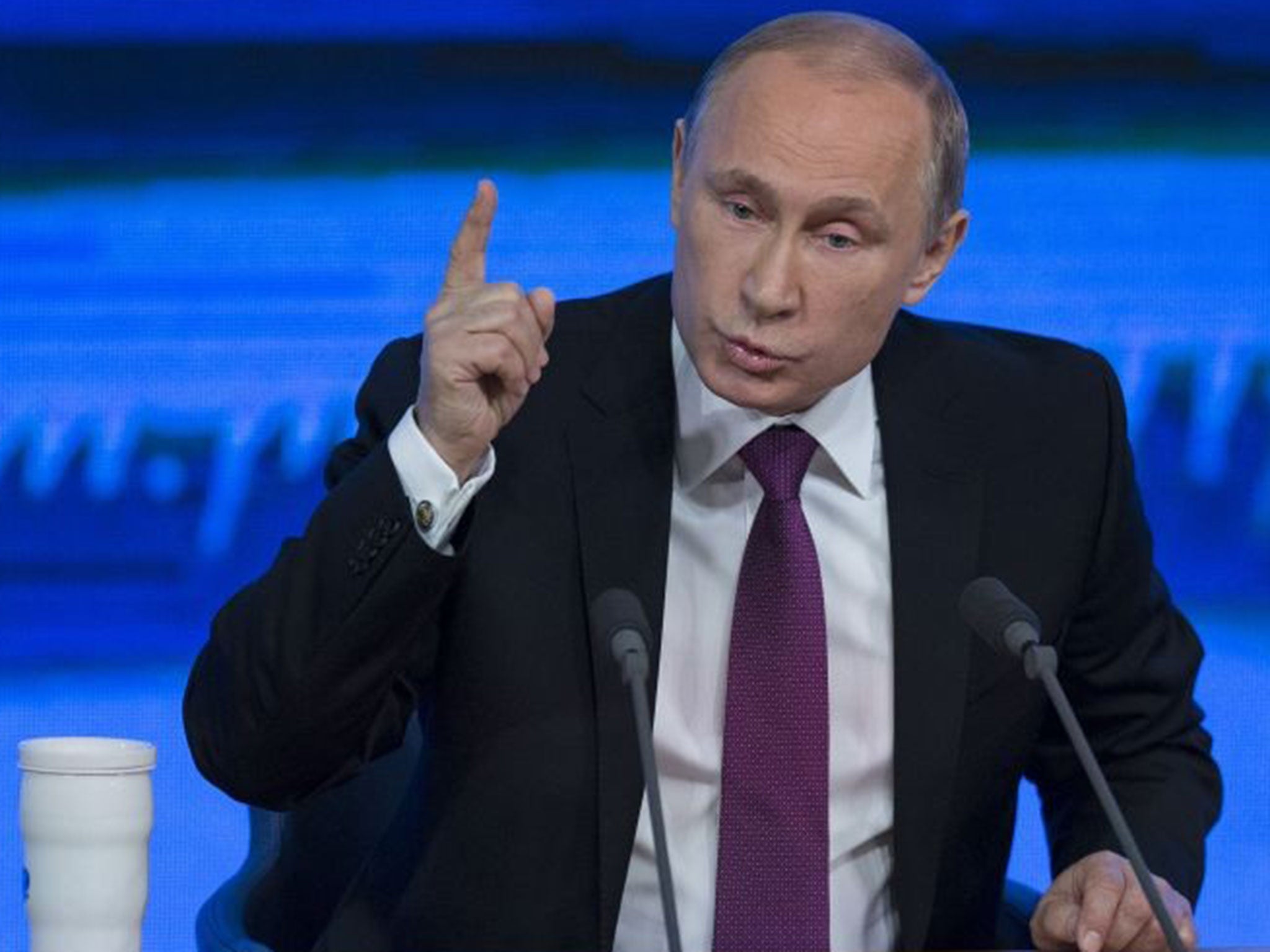It is incomprehensible that Russia is still being allowed to use the Swift system
While kicking Russia off Swift would make life awkward for western countries which buy a lot of Russian gas, the west’s failure to take this step sends out a terrible message


Your support helps us to tell the story
From reproductive rights to climate change to Big Tech, The Independent is on the ground when the story is developing. Whether it's investigating the financials of Elon Musk's pro-Trump PAC or producing our latest documentary, 'The A Word', which shines a light on the American women fighting for reproductive rights, we know how important it is to parse out the facts from the messaging.
At such a critical moment in US history, we need reporters on the ground. Your donation allows us to keep sending journalists to speak to both sides of the story.
The Independent is trusted by Americans across the entire political spectrum. And unlike many other quality news outlets, we choose not to lock Americans out of our reporting and analysis with paywalls. We believe quality journalism should be available to everyone, paid for by those who can afford it.
Your support makes all the difference.Tanks are rolling into to Kyiv. Ordinary Ukranians are taking up arms. The gangster in the Kremlin has made nuclear threats. While all this is going on, the west is still debating whether or not to cut Russia out of the Swift international payments system.
The fact that this is still happening is incomprehensible. It genuinely makes me want to weep. I mentioned the Society for Worldwide Interbank Financial Telecommunication in my last column, but for those just getting on board, here’s a brief explanation of what it is, what it does, and why it matters.
Swift is a key piece of financial plumbing; a secure messaging system banks use to facilitate making cross-border payments. It is owned by its members and it is based in Belgium. It is also incorporated under the latter’s laws.
More than 11,000 financial institutions make use of its services. Cutting a nation’s banks off from it can make life extremely difficult for them. Without it, every routine transaction, of any kind, would, in theory, have to be processed directly, bank-to-bank, ramping up costs and leading to delays.
Swift is sufficiently important to have been used as a lever before, notably on Iranian banks in 2012 as a result of the country’s nuclear programme. The sanction was lifted in 2016, following the multinational Iran nuclear agreement, but reimposed in 2018 in the wake of pressure from the Trump administration, which had withdrawn from it.
Being caught between the US and the EU, when they disagree, as they did in this instance, makes life complicated for Swift as an organisation. America’s fondness for imposing its laws beyond its territory is well-known. It has no qualms about bringing the hammer down on organisations that refuse to pay heed to them.
The EU, however, has a blocking statute designed to frustrate such extra territoriality. All this helps to explain why advocates of the measure, including the UK, have stressed the need for international agreement with respect to Russia.
It should be said that there is an ongoing debate over just how effective cutting Russia off from Swift would be. There are rivals being currently being developed. China has one. Russia has been trying to develop one of its own. These could in theory be used to circumvent the sanction.
Frances Coppola, an economist and blogger, tweeted that the US decision to ban Russian banks from dollar clearing was “way more draconian” because dollar clearing can’t be bypassed, even though the consensus is that Swift’s rivals aren’t as good and could still cause Russia problems.
Coppola also described the lack of action of Swift as “disappointing” because it is. Deeply disappointing. Because while kicking Russia off it would make life awkward for western countries which buy a lot of Russian gas – like Germany – the west’s failure to take this step sends out a terrible message.
And it’s one which will have been heard by Putin, a master of the politics of divide and rule. It is indicative of weakness and a lack of resolve. It makes the all the flying of Ukrainian flags and the crying of crocodile tears over the impact the dictator’s invasion has had on the nation’s citizens look very cheap.
To keep up to speed with all the latest opinions and comment sign up to our free weekly Voices Dispatches newsletter by clicking here
For those arguing that measures need to be “held in reserve” as part of a gradual ratcheting up of pressure, are you kidding? Have you not seen what’s happening? What would Putin need to do? How many Ukrainians does he need to kill?
“I will not be diplomatic on this. Everyone who now doubts whether Russia should be banned from Swift has to understand that the blood of innocent Ukrainian men, women and children will be on their hands too. BAN RUSSIA FROM SWIFT,” said a Tweet from Dymtro Kuleba, the Ukrainian foreign minister.
That should be enough to end the debate. His request should be heeded with alacrity. The fact that Russian banks are still able to use Swift is, as I said, incomprehensible. Those resisting cutting it off, for whatever reason, should simply take five minutes to watch any reputable TV news channel.
Join our commenting forum
Join thought-provoking conversations, follow other Independent readers and see their replies
0Comments